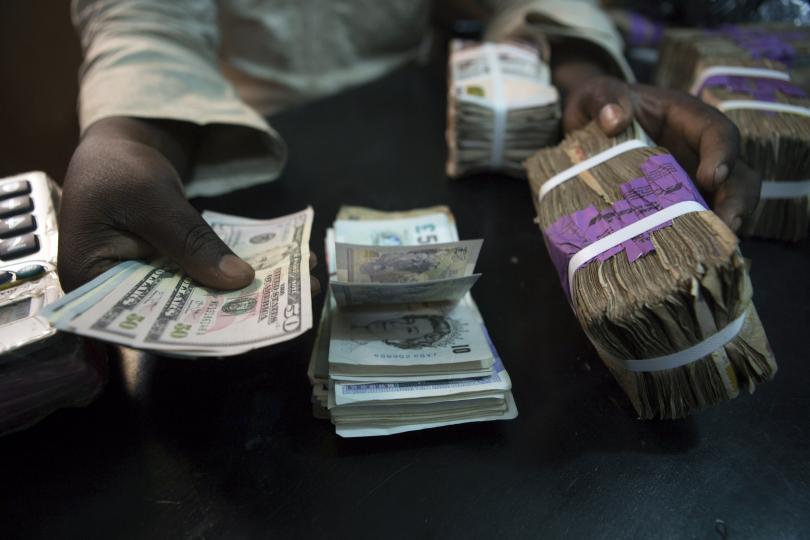The Central Bank of Nigeria (CBN) has initiated a comprehensive overhaul of regulatory guidelines governing Bureau De Change (BDC) operators.
Following extensive consultations with stakeholders, the CBN has introduced a series of pivotal changes aimed at enhancing the efficiency and transparency of BDC operations across the country.
Key among the reforms is the removal of the mandatory caution deposit previously set at N200 million for tier-1 BDC license holders, as well as the waiver of the N50 million deposit requirement for tier-2 license holders.
This move is expected to alleviate the financial burden on BDCs and enable them to allocate resources more effectively.
Furthermore, the non-refundable annual license renewal fee, which previously amounted to N5 million for tier-1 BDCs and N1 million for tier-2 BDCs, has been withdrawn.
This adjustment seeks to streamline the regulatory framework and eliminate unnecessary financial obligations for BDC operators.
Haruna Mustafa, Director of the Financial Policy and Regulation Department at the CBN, emphasized the importance of these changes in optimizing BDC operations and fostering financial inclusivity.
Mustafa underscored the need for existing BDCs to reapply for licenses based on their preferred tier or license category, as outlined in the revised guidelines.
Also, new license applicants must adhere to the specified conditions for their chosen BDC category.
Existing BDCs are required to meet the minimum capital requirements for their selected license category within six months from the effective date of the guidelines, ensuring a smooth transition to the new regulatory framework.
In alignment with market needs and regulatory standards, the guidelines have also been updated to revise permissible activities for BDCs.
These revisions aim to enhance market efficiency and ensure compliance with corporate governance requirements, as well as anti-money laundering, counter-terrorism financing, and counter-proliferation financing provisions.
The CBN has announced that the receipt and processing of license applications will commence from the effective date of the guideline.
Interested applicants are directed to submit the necessary information electronically to bdclicense@cbn.gov.ng, including the name of the promoter, name of the proposed BDC, email address, and phone number of the promoter.
These comprehensive guidelines replace the previous operational guidelines issued in November 2015 and underscore the CBN’s commitment to fostering a robust and transparent forex market.
The Regulatory and Supervisory Guidelines for BDC Operations are scheduled to take effect from June 3, 2024, signaling a new era for BDC operators in Nigeria.

 Billionaire Watch2 weeks ago
Billionaire Watch2 weeks ago
 Startups4 weeks ago
Startups4 weeks ago
 News4 weeks ago
News4 weeks ago
 News4 weeks ago
News4 weeks ago
 Bitcoin4 weeks ago
Bitcoin4 weeks ago
 Naira4 weeks ago
Naira4 weeks ago
 Forex3 weeks ago
Forex3 weeks ago
 Treasury Bills4 weeks ago
Treasury Bills4 weeks ago
























